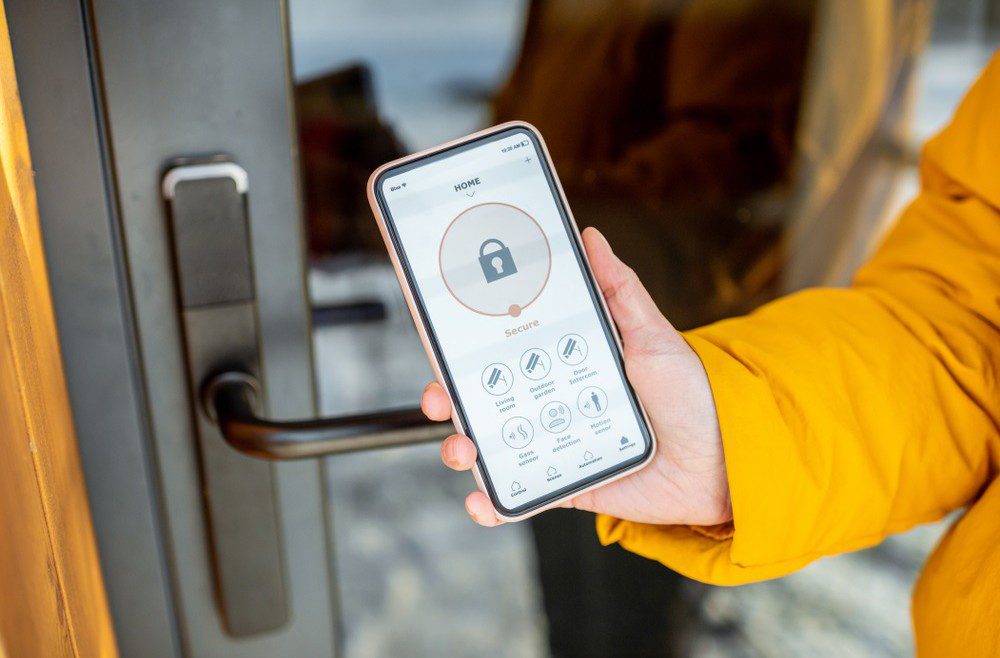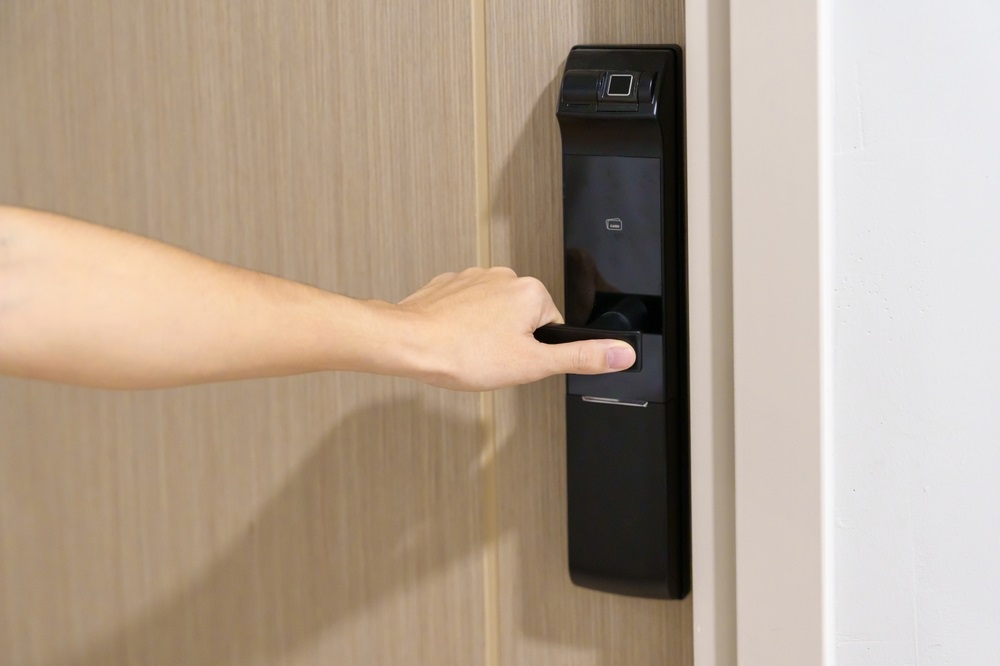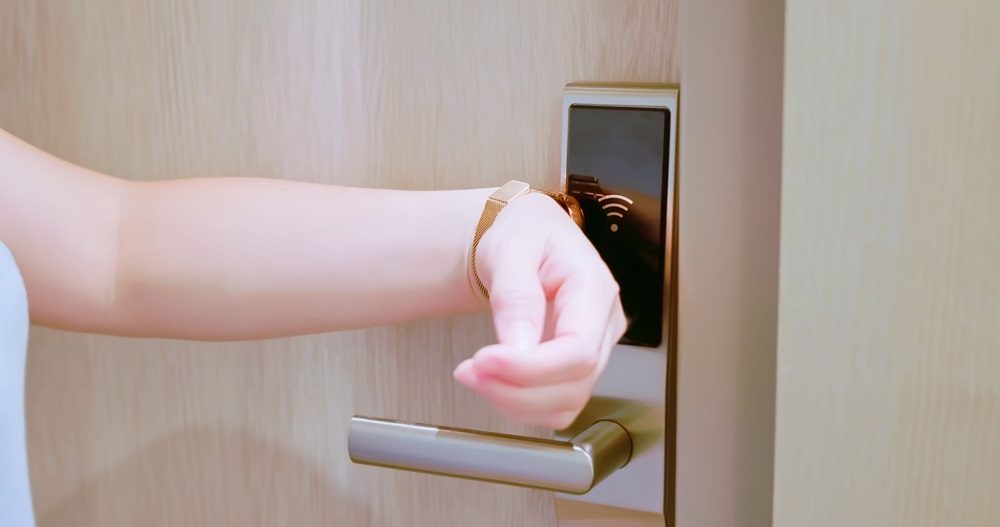Do You Need a Local Locksmith In New Orleans, LA? Call Royal Locksmith Now. License: F-2457
Do You Need a Local Locksmith In New Orleans, LA? Call Royal Locksmith Now. License: F-2457


Smart locks are becoming increasingly popular and more prevalent in homes. They offer a convenient way to grant access to guests, family members, and workers — but at what cost?
Smart locks are vulnerable to hacks and data breaches, which could put your home at risk of burglary or break-ins. While smart locks may be secure when used as intended, there are also ways that hackers can exploit these devices. This article will examine how smart lock technology works and whether or not it's safe compared to other lock types.
Smart locks refer to locks that use technology to operate. They can be remotely controlled and monitored through a smartphone app and usually require an internet connection.
Smart locks have many features in common with traditional locks, but they also have some distinct differences:

Nothing is more frustrating than coming home after a long day, only to find…
Locks are the backbone of security for our homes and businesses. We trust them…
Doors and their locks are the primary barrier between your personal space and the…
It’s a common scene: you're juggling grocery bags, a gym bag, and maybe even…
If you own a car with a transponder key or a keyless entry system,…
Smart locks come in three primary varieties.

If your smart lock has a vulnerability, it's important to know how to avoid it. To avoid unauthorized access to your home, it is advisable to disconnect your devices from Wi-Fi or Bluetooth when not in use. Intruders commonly exploit these connections. Also, disable features allowing others access from outside the house (like Amazon's Key). If someone tries getting into your home through these methods and fails, they'll likely give up quickly since breaking into a house is much harder than most people realize!
What happens if there is a vulnerability found?
Suppose any vulnerabilities are discovered in smart locks and other security systems like this one. In that case, patches will likely be released by companies who create these products, so keep checking for updates regularly!

Transforming data into an unintelligible form by using an algorithm is known as encryption. This method is used to prevent unauthorized access by individuals who do not possess the encryption key, and it is a crucial aspect of security for smart locks. Encryption is an effective means of ensuring that your data remains safe and secure.
Before purchasing a smart lock, you must understand how encryption works. Some types may need to offer adequate protection against hackers or malicious individuals who want access to your home or business premises without permission.
Convenience is one of the benefits of using smart locks over traditional locks. With smart locks, you can unlock doors with your phone, use built-in keypads for codes, and receive notifications when someone tries to access your home.
One of the advantages of smart locks is that they use Bluetooth or Wi-Fi to communicate with a central hub, typically located in the home's router or modem. Compared to smart thermostats that can be accessed through an internet connection, these technologies are considered more secure since they are less susceptible to hacking attempts.
Traditional deadbolts tend to be less expensive than smart ones since they don't require any additional hardware beyond what comes with them at purchase time; however, some companies do offer discounts on new models if you trade in older ones from brands like Schlage or Kwikset--so it never hurts to check!

To ensure the safety of your home, follow these best practices:
The ANSI/BHMA Grading System is a standard for residential locks. It's used to classify and describe the quality of a lock, from one to five, in ascending order of security level. The higher the grade, the more secure your lock will be against forced entry attempts.
Safety certification is UL certification. An independent third party has tested and confirmed that your smart lock is safe to use. Therefore it is a third-party verification of the product. Because it has been created by an unbiased authority, you can be certain that the product is secure for use in your home or business if it bears this mark of approval.
This kind of certification is expensive; UL testing costs thousands of dollars to begin! However, this is my recommendation for you (and the majority of people) if you want the assurance that your smart lock has been thoroughly tested and certified as safe and dependable.
One of the biggest risks with smart locks is that they are vulnerable to hackers. The vulnerabilities of smart locks have yet to be well understood, making them an easy target for hackers who want to access your home or business.
Smart locks can be hacked remotely, so you should ensure your internet connection is secure before purchasing one of these devices. If someone could hack into your Wi-Fi network and gain access through one of these locks, they could steal valuable belongings from within the building itself--or worse yet--they could cause physical harm by locking everyone inside until they agree upon a ransom payment!
Breaking into smart locks can be quite difficult. The advanced technology used in smart locks provides greater security than traditional ones. However, criminals can still find ways to gain entry into your home if they are determined enough.
Copying traditional keys is a simple task for burglars who can easily obtain the necessary tools and materials at hardware stores or online. Conversely, hacking into a modern smart lock requires specialized knowledge and equipment, and it remains a challenging task even with these resources.
However: social engineering attacks can be used against traditional and smart locks if you give away information about yourself or let someone inside before verifying who they are (e.g., letting in an unknown repairman). Additionally, some smartphones have the ability--with certain apps installed--to unlock many types of electronic door latches without needing physical accesses such as keypads or fingerprint scanners.
Yes, a smart lock can be hacked. The biggest concern with a smart lock is that it will allow someone to access your home without your permission.
If this happens, here's what you can do:
In conclusion, it's important to understand that smart locks are not a silver bullet. They're not going to stop all burglars or prevent every crime from happening in your neighborhood. If you are looking for additional security for your property or apartment building, it may be worth considering the advantages of electronic locks over traditional locks.
Get in touch with Royal Locksmith in New Orleans to enhance the security of your building with smart locks.
If you have ever been locked out of an older car, you may remember how simple it once was to get back in. Today, that same situation feels very different. Newer cars are far more…
Read More
Most people do not call a locksmith on a good day. The call usually comes after something has already gone…
Read More
Lockouts never happen when it is convenient. It is usually late at night, early in the morning, or right when…
Read More
If your car uses a smart key, key fob, or push button start, it is reasonable to wonder who you…
Read More